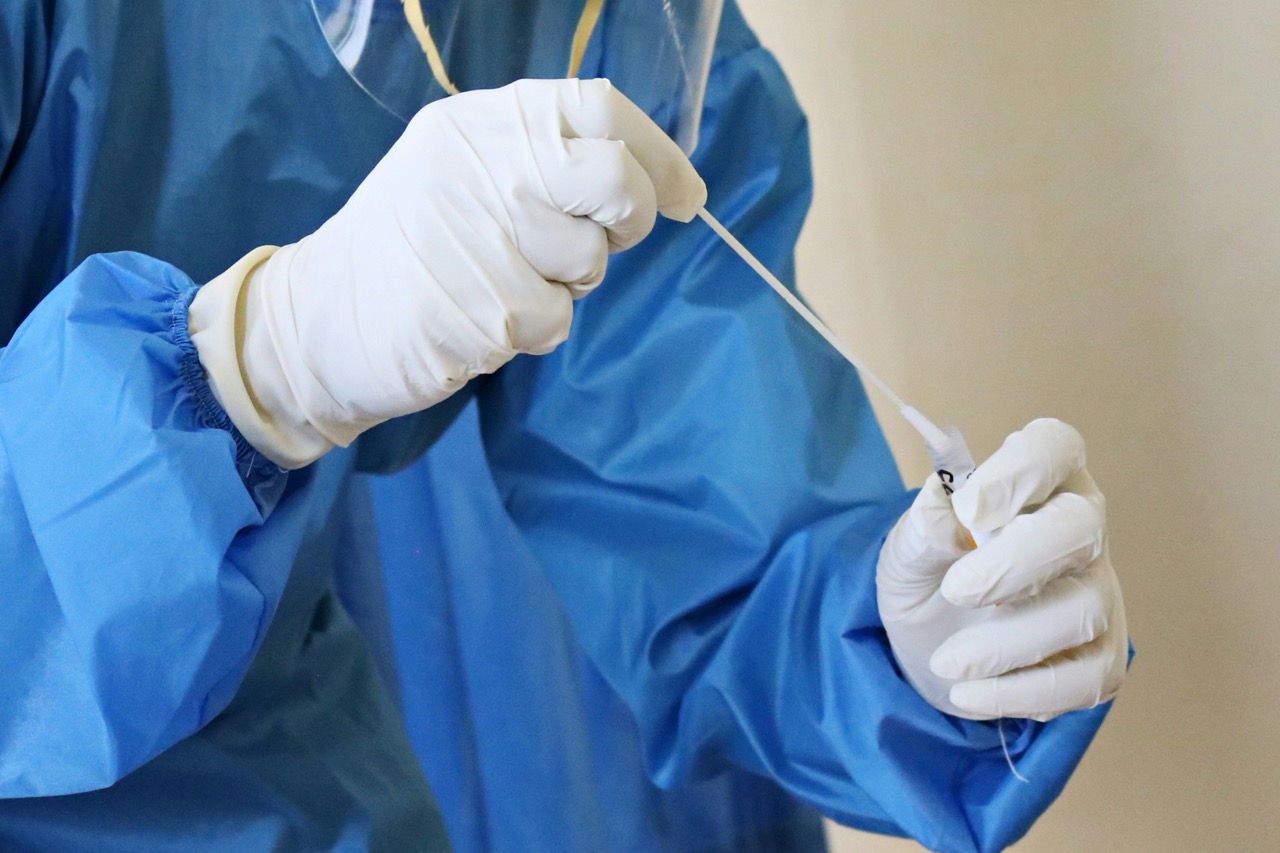Sexually transmitted diseases (STDs) pose significant public health challenges, necessitating a nuanced approach to their disclosure. The ethical dilemmas surrounding STD disclosure touch upon various facets, including legal obligations, patient autonomy, public health considerations, and the role of healthcare providers. Each dimension presents a complex interplay of interests, raising critical questions about how best to navigate the moral landscape of STD management. Understanding these dilemmas is essential for fostering a healthcare environment that protects individual rights while promoting community health.
As the stigma attached to STDs continues to influence societal attitudes, healthcare providers, patients, and policymakers must grapple with the ethical implications of disclosure practices. This article explores the intricacies of STD disclosure ethics, examining the multifaceted challenges that arise in balancing individual rights with public health priorities. By addressing these ethical dilemmas, we can identify pathways toward more informed, compassionate, and effective approaches to STD management.
Understanding the Importance of STD Disclosure Ethics
The ethics of STD disclosure are vital not only for the individuals affected but also for the broader public health landscape. Proper disclosure can enable timely treatment, prevent further transmission, and ultimately contribute to the control of STDs. Ethical considerations become paramount when determining how and when individuals should notify their partners or seek medical intervention. The failure to disclose an STD can result in severe health consequences for both the individual and their partners, highlighting the need for ethical frameworks that guide disclosure practices.
Furthermore, the rise of STDs and the persistent stigma associated with them necessitate a careful examination of disclosure ethics. Ethical principles such as beneficence, non-maleficence, autonomy, and justice must inform the decision-making process for both healthcare providers and patients. Understanding these ethical underpinnings can help mitigate the fear and anxiety often associated with disclosure, thus promoting a more supportive environment for individuals dealing with STDs.
Legal Obligations Surrounding STD Disclosure Practices
Legal obligations surrounding STD disclosure vary significantly across jurisdictions, often reflecting a balance between protecting public health and individual rights. In many regions, laws mandate that healthcare providers inform partners of a patient’s STD status to prevent further transmission. However, these laws can also place healthcare providers in ethically precarious positions, where their duty to protect public health may conflict with patient confidentiality.
Moreover, the legal landscape continues to evolve as new STDs emerge and societal attitudes shift. Jurisdictions may impose varying penalties for non-disclosure, further complicating the ethical decision-making process. Understanding these legal obligations is crucial for healthcare providers, as they navigate the challenging waters of ethical disclosure while adhering to state and federal regulations.
Patient Autonomy vs. Public Health Concerns
At the heart of STD disclosure ethics lies the tension between patient autonomy and public health concerns. Patients have the right to make informed choices about their health, including whether to disclose their STD status to partners. However, this autonomy can come into conflict with public health imperatives, which prioritize the prevention of disease transmission and community safety.
This ethical dilemma raises questions about the responsibilities of individuals in safeguarding their partners’ health. While respecting patient autonomy is critical, it is equally important to consider the implications of non-disclosure on public health. Striking the right balance between these competing interests is essential for fostering a culture of responsibility and transparency in sexual health.
The Role of Healthcare Providers in Disclosure Situations
Healthcare providers play a pivotal role in facilitating STD disclosure, serving as the primary source of information and support for affected individuals. Their ethical obligations extend beyond simply diagnosing and treating STDs; they must also guide patients in understanding the importance of disclosure to partners. This involves providing patients with the necessary tools and resources to communicate their status effectively and compassionately.
Additionally, healthcare providers must navigate their ethical responsibilities regarding confidentiality while considering the health implications of non-disclosure. This dual role can create ethical tensions, as providers must balance the need to respect patient privacy with potential risks to partners and the community. Proper training and protocols can empower healthcare providers to address these challenges thoughtfully and ethically.
Confidentiality and Privacy Issues in STD Disclosure
Confidentiality and privacy are foundational principles in healthcare, yet they become particularly complex in the context of STD disclosure. Patients often fear that disclosing their status will lead to stigmatization or breach of privacy, which can deter them from seeking care or communicating with partners. This fear underscores the necessity for healthcare providers to foster a safe and supportive environment where patients feel comfortable discussing their sexual health.
Moreover, the ethical obligation to maintain confidentiality may conflict with responsibilities to inform partners at risk. Providers must navigate this landscape delicately, ensuring that they respect patient privacy while also addressing potential public health risks. Establishing clear guidelines and protocols around confidentiality can help mitigate these dilemmas, allowing for ethical disclosures that prioritize both individual rights and community health.
The Impact of Stigma on Disclosure Decisions
Stigma surrounding STDs remains a significant barrier to disclosure, impacting both patient behavior and public health outcomes. Many individuals fear judgment or ostracization, which can lead to reluctance in disclosing their STD status to partners or healthcare providers. This stigma can perpetuate cycles of infection and hinder efforts to control the spread of STDs, underscoring the ethical imperative to address these societal attitudes.
Efforts to combat stigma must be multifaceted, involving education, advocacy, and community engagement. Healthcare providers have a crucial role in normalizing discussions about STDs, creating an atmosphere that encourages open communication. By actively working to dismantle stigma, providers can empower patients to disclose their status responsibly, thereby enhancing both individual and community health.
Ethical Considerations for Partner Notification
Partner notification remains a critical component of STD management, yet it raises complex ethical questions about responsibility and agency. While it is essential for individuals to inform their partners of potential exposure, the manner in which this is done can vary significantly. Ethical considerations include the need for sensitivity in communication and the potential consequences for relationships.
Healthcare providers often assist patients in navigating these conversations, emphasizing the importance of honesty and empathy. However, the ethical implications extend beyond the act of notification itself; providers must also consider the emotional and psychological impact this disclosure may have on both the patient and their partner. Developing ethical guidelines for partner notification can help ensure that these conversations are handled with care and respect.
Balancing Individual Rights and Community Safety
Balancing individual rights with community safety is a central ethical challenge in STD disclosure. On one hand, individuals have the right to make decisions about their own health and disclosure practices; on the other hand, public health demands that individuals take responsibility for preventing the spread of infections. This tension necessitates a thoughtful approach to disclosure that acknowledges both personal autonomy and collective well-being.
To navigate this balance, public health initiatives must focus on education and empowerment. By fostering a culture of responsibility and informed decision-making, individuals can better understand their role in protecting both themselves and their partners. Strategies that emphasize the importance of disclosure without infringing on personal rights are crucial for promoting both individual and community health.
Disclosing STDs: Challenges in Consent and Communication
The process of disclosing an STD can be fraught with challenges, particularly regarding consent and communication. Individuals may struggle to find the right words or feel uncertain about how their partner will react. These challenges can be exacerbated by the emotional weight of the situation, leading to avoidance or incomplete disclosures that may endanger partners.
Healthcare providers can play a vital role in assisting patients with these challenges by offering guidance on effective communication strategies. Training programs that equip patients with the skills to navigate these conversations can lead to more responsible and ethical disclosures. Ensuring that individuals feel supported throughout this process is essential for fostering a culture of open communication and mutual respect.
The Consequences of Non-Disclosure for Patients and Partners
The consequences of non-disclosure can be profound, impacting not only the individual but also their partners and the wider community. For the individual, failing to disclose can lead to advanced disease progression, complications, and emotional distress, all of which can have lasting effects on their health and well-being. For partners, the risks include exposure to STDs, potential health complications, and the emotional fallout of a betrayal of trust.
From a public health perspective, non-disclosure contributes to the ongoing transmission of STDs, complicating efforts to control outbreaks and mitigate health disparities. Understanding these consequences emphasizes the ethical imperative for responsible disclosure practices, highlighting the importance of support systems that empower individuals to make informed decisions about their sexual health.
Developing Guidelines for Ethical Disclosure Practices
Creating comprehensive guidelines for ethical disclosure practices is essential for navigating the complexities of STD management. These guidelines should encompass legal requirements, ethical considerations, and best practices for communication. Collaboration among healthcare providers, public health officials, and community organizations can facilitate the development of these guidelines, ensuring that they are grounded in both ethical principles and practical realities.
Additionally, education should be a cornerstone of these guidelines, focusing on empowering individuals with the knowledge and skills necessary for responsible disclosure. By providing resources and support, healthcare systems can foster an environment where individuals feel confident in their ability to communicate their STD status to partners, thereby promoting better health outcomes for all.
Future Directions in STD Disclosure Ethics and Policy
As the landscape of sexual health continues to evolve, so too must the ethical considerations surrounding STD disclosure. Future directions should include a focus on integrating technology into disclosure practices, such as applications that facilitate anonymous partner notification and resources for education. These innovations can provide new avenues for communication and support, reducing the stigma associated with STDs.
Furthermore, ongoing research into the ethical implications of disclosure practices is essential for adapting policies to emerging challenges. As societal attitudes towards STDs change, healthcare professionals must remain vigilant about the ethical dilemmas that arise, continuously refining their approaches to align with best practices and the needs of the communities they serve.
In conclusion, the ethical dilemmas surrounding STD disclosure are complex and multifaceted, requiring careful consideration of legal obligations, personal autonomy, public health concerns, and the role of healthcare providers. By addressing these dilemmas with sensitivity and integrity, we can cultivate an environment that promotes responsible disclosure while respecting individual rights. The development of ethical guidelines, education initiatives, and collaborative efforts among stakeholders will be instrumental in navigating these challenges and fostering better health outcomes for individuals and communities alike. As we move forward, prioritizing ethical practices in STD disclosure will be essential for advancing public health and supporting those affected by STDs.










